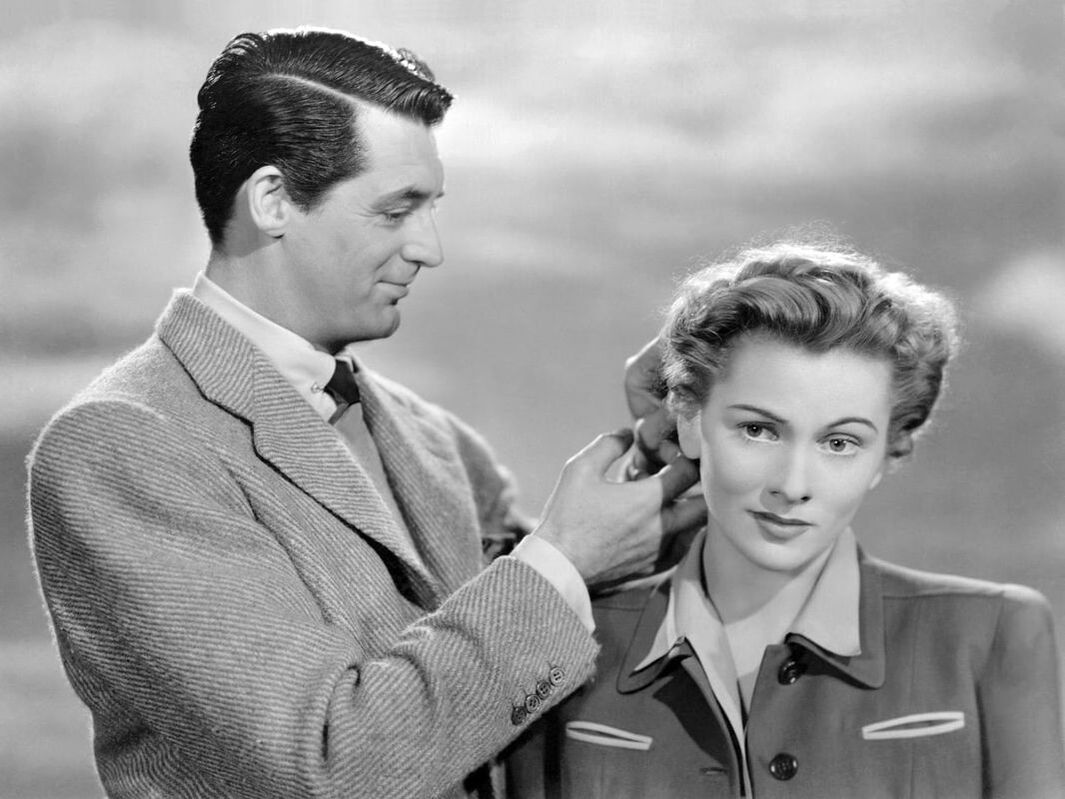|
A wealthy heiress becomes convinced her compulsive liar
husband is planning to murder her for the insurance money. DRAMA
|
Suspicion (1941)Directed by Alfred Hitchcock
Written by Samson Raphaelson, Joan Harrison, Alma Reville Starring Cary Grant, Joan Fontaine, Nigel Bruce, Cedric Hardwicke, May Whitty, Heather Angel Based on the novel Before the Fact by Francis Iles Oscar Wins - Best Actress (Joan Fontaine) Oscar Nominations - Best Picture, Best Original Score (Franz Waxman) |
Long before he entered Hollywood, Alfred Hitchcock had made a name for himself directing psychological thrillers the likes of which nobody had ever seen before. Suspicion falls neatly into this category, as we are constantly thrown for a loop and lulled into a false sense of security. We're never quite sure if Lina (Fontaine) is correct in her assumption that her lying, gambling, yet charming husband Johnnie (Grant) is truly planning her murder. Hitchcock ultimately leaves it up to you in the end, but the journey there is fraught with surprise and fantastic performances.
Typecasted nice guy Cary Grant excels as possible sociopath Johnnie Aysgarth, who charms young heiress Lina McLaidlaw into marrying him. But as the marriage progresses, Lina realizes her husband is a compulsive liar, a gambler, a cheat, a swindler, and possibly even a murderer. The cat and mouse game between Grant and Fontaine make this film wildly entertaining and suspenseful. You never know for sure who is in the right, or what's really going on under the surface. That's smart filmmaking. Hitchcock really was the master at keeping the audience in suspense until just the right moment. Suspicion isn't one of Hitchcock's most well-known films, mostly because he would follow it with classics like North by Northwest, Rear Window, Vertigo, The Birds, and the immortal Psycho among others. But Suspicion still stands out as a masterclass in misdirection from the man who practically invented the modern day psychological thriller and the slasher film. Definitely worth a watch, as it still holds up nearly a century later. |
